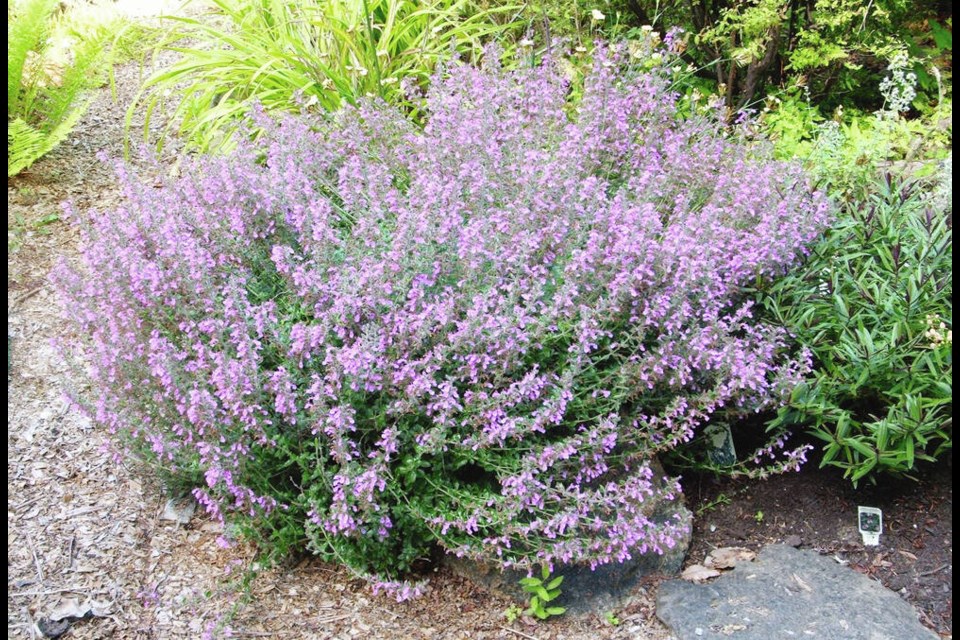Following a long, cool spring with intermittent rainfall to keep soils moist, gradually warming temperatures last month brought on an astonishing explosion of growth.
All of a sudden I was awash in glorious, fresh food — broad beans and peas, baby carrots, cauliflower, sprouting broccoli, zucchini, lettuce, endive, and raspberries. What a welcome change from last year, when berries baked and shrivelled in the hot early summer sun. Seeds failed to germinate in hot soils and emerging plantings withered in the heat. This year, ironically, I was ludicrously over-prepared with masses of shade cloth, which has not, so far, been needed.
My two four-metre double rows of shelling peas, planted 10 days apart in spring, are loaded with pods. I pick every two days. The first few pickings barely made a dent in the crop. Because this is one of my most treasured food plantings, and one I hope to give me a close to year-round supply, I am keeping it well watered.
Perhaps because of this year’s delayed warmth, some plant appearances in the garden were late. Self-sown nasturtiums that usually emerge in mid-spring did not make an appearance until early summer.
Two evergreen shrubs, hit hard by January’s freezing weather, had turned almost entirely brown and seemed dead until late last month, when wee green shoots began appearing along their stems.
With the wall germander (Teucrium chamaedrys), this is an opportunity to return the plant, with pruning, to its original neat, compact shape. Because the plant has been so undemanding, over the years I’d let it become overgrown and a little leggy though it still made a lovely summer show of rosy pink flowers.
I had planned to dig the plant up. I’m glad now that I waited.
The star jasmine (Trachelospermum jasminoides) looked terrible until the end of June, when a few parts began greening up and tiny green shoots appeared along the stems. I grow this glossy-leaved evergreen in a large pot, as a lax vine against a trellis, but it can also be grown as a sprawling shrub.
This plant is ideally situated next to a sitting-out area, where the delightful fragrance of its white, pinwheel-shaped summer flowers can be fully appreciated.
Roses and lavender. Ever since I was given a Flower Carpet rose to try, it has resided in undemanding fashion in a large pot at a front corner of the garden shed, next to a bed housing other roses and lavender.
This summer, the Flower Carpet rose has grown and bloomed with remarkable vigour, its glossy foliage backing a profusion of blooms that have been joined by neighbouring lavender flower spikes.
The rose has required little care apart from a light pruning and a replacement top layer of planting mix in late winter, and regular summer watering.
A question. I am wondering whether marigold plants self-sow in any of your gardens. I’ve heard and read of this being a common occurrence, but it has never happened in mine, until this year.
Lat month, I discovered tiny self-sown marigold plants, individuals and in clusters. They were unmistakable because of the pungent scent of the crushed leaves.
I did have what I would call a “rogue” marigold in the same bed last summer. One of a batch of compact marigold transplants I’d grown turned into a giant bush, filled with scarlet and yellow flowers.
Perhaps that plant was a genetic “throwback” whose seed is more likely to survive in cold winter soils and sprout in spring than the more refined varieties commonly grown.
I’ll be monitoring these surprise “volunteers’ through the summer, and watch for the appearance of more next year.
GARDEN EVENTS
Plant sales. The Friends of Government House Gardens Society are hosting sales of perennials on Tuesday and Thursday mornings from 9 a.m. to 12 p.m. in the Plant Nursery, across from the Tea Room at Government House, 1401 Rockland Ave.
Introduction to new plants. The Horticulture Centre of the Pacific, 505 Quayle Rd. in Saanich, is presenting its next workshop in the monthly series Plant Identification and Culture with Jane Tice on Saturday, July 27, 1 to 4 p.m. Each session introduces 20 new plants that fit in with our local climate. Cost for HCP members $40 per session. Others $50. To register, call 250-479-6162 or at .



